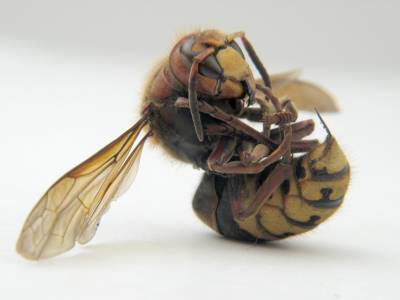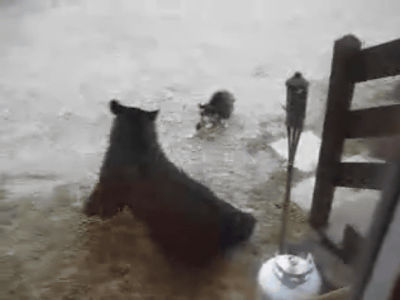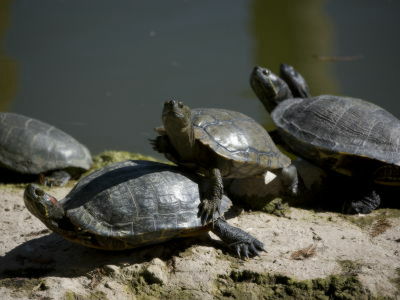Movie of "Wasp of Japan vs European Bee"

It is usual to say that exotic species usually eat up native species that were there in the beginning, but in the case of bees, because wasps are a strength that is not extraordinary, beekeepers' honey bees It will be annihilated.
So, from the National GeoGraphic, which has a reputation for high-quality pictures and images, please have a shaky movie with 30,000 honeybees nest attacked by just a few dozen hornets.
Movie with only extracted raid scenes
http://youtube.com/watch?v=JDSf3Kshq1M
Mirror of the above movie
http://gprime.net/video.php/hornetsvsbees
Full version movies provided by National GeoGraphic(CM enters first)
In general, bees are five times bigger than bees, so bees seem to have little means to resist.
I have this size
However, if I watched TV programs that I saw before, I found out how to intercept such hornets that were attacking, by putting them under a group, covering them all over and steaming them, what happened Is not it?
Wasp - Wikipedia
In the case of a honeybee that does not have anything to fight against this species, the relationship of the battle is unilateral, and unless there is asylum by bee breeders, it is necessarily forced to annihilate. This is a factor that prevents wildening and expanding in Japan despite the fact that wild animals by bee-bees are born here and there every year from the breeding group of honeybees.
Although you can understand if you read the other parts, honey bees of an endemic species in Japan have a means to resist, but it seems that foreign species do not have defensive measures because they are never attacked by a hornet that is unimaginable like this .
"Alarm pheromone" component of the turtle fly - interview - environment goo
For the beetle, bee's nest is a good feeding ground. When a worker finds a nest, he feeds a bait mark pheromone and rubs it around the surrounding trees. It volatilizes and reaches other bees, working bees gather. When three or more bees are collected, they start chewing bees at the front of the nest.
At this time, honey bees do not have anything to do, and dozens of bluefin tuna bite kill and destroy as many as 40,000 bees in less than 2 hours. After the larvae and pupae in the middle of the day, it will bring it into their nests for several days and feed them into their larvae.
For waspers, it is almost zero damage and harvesting a lot.
Related Posts:







